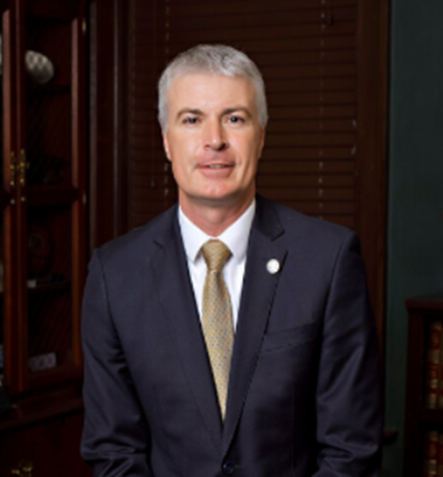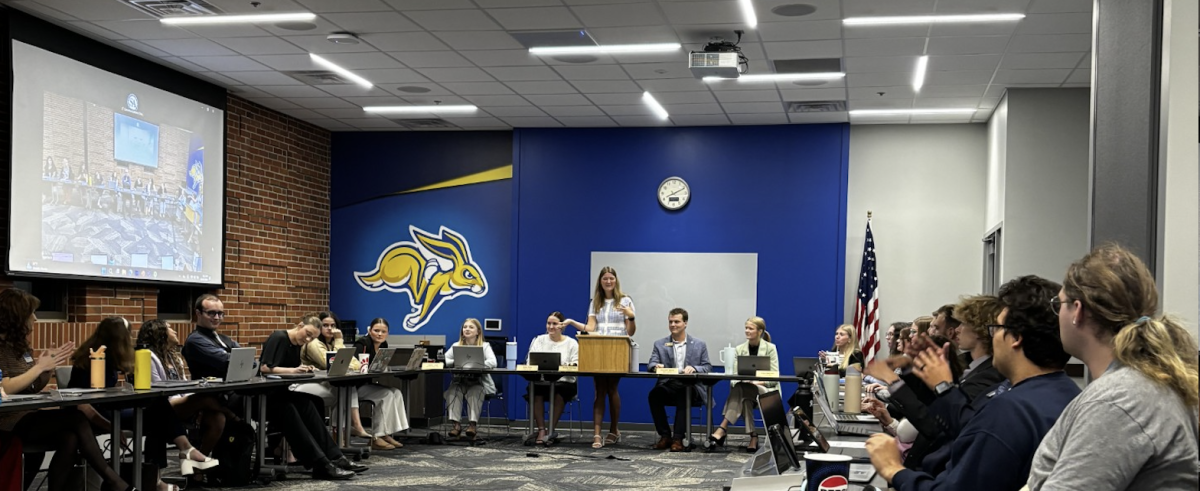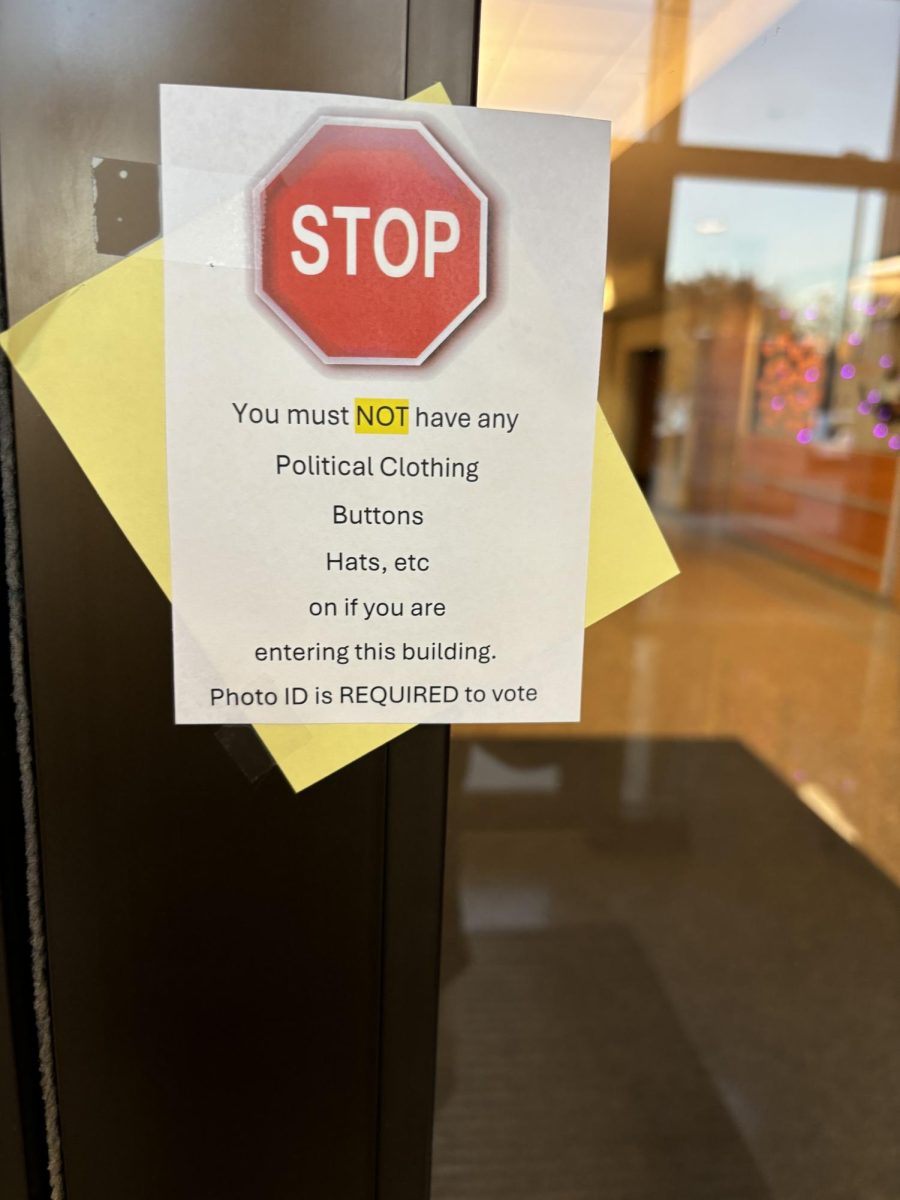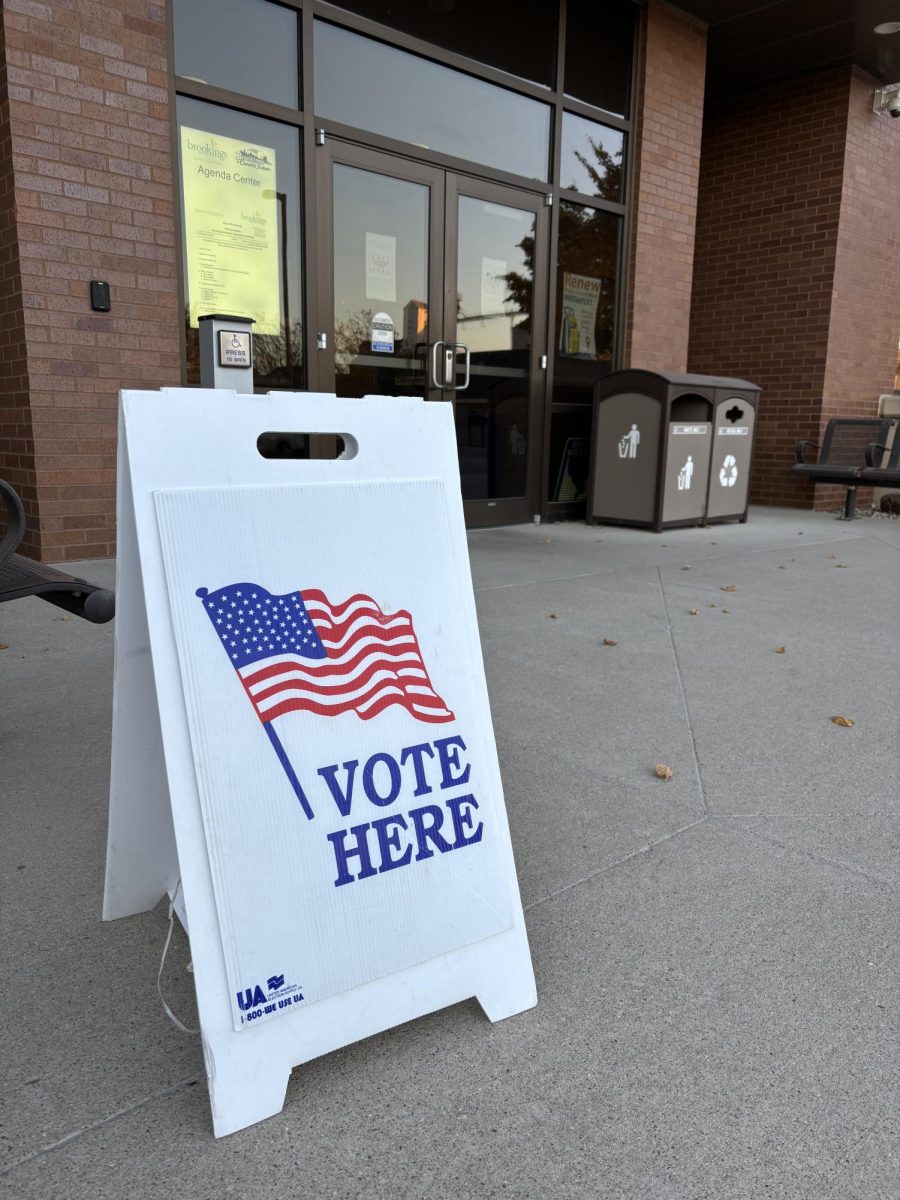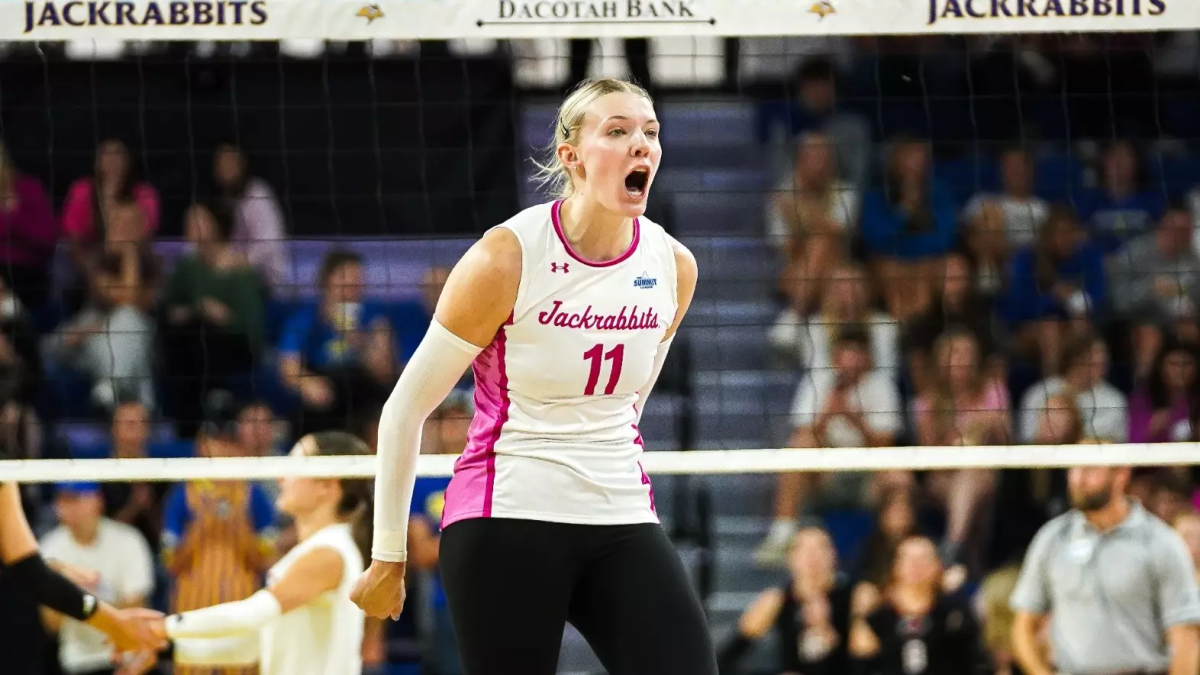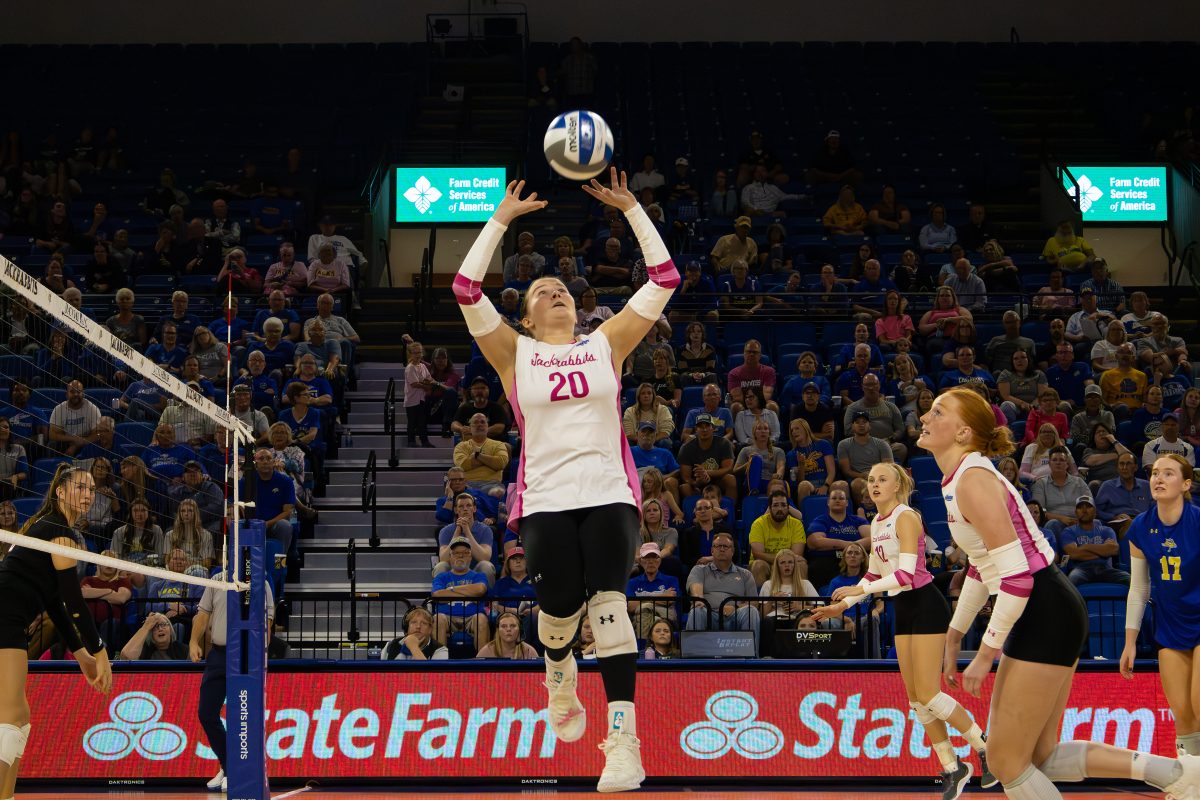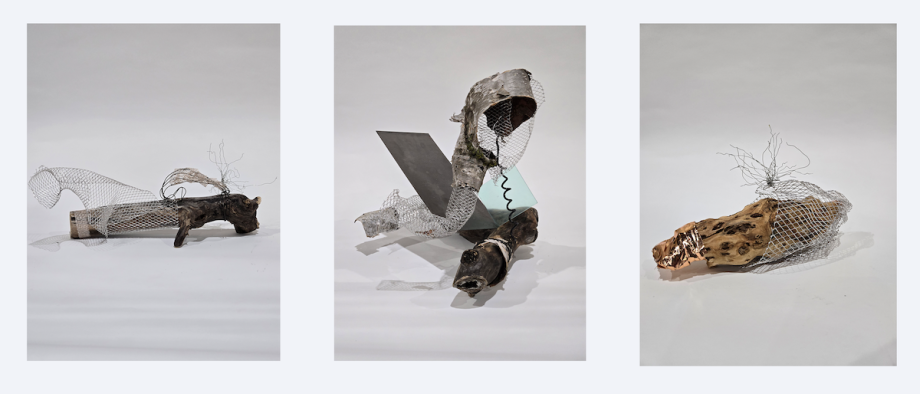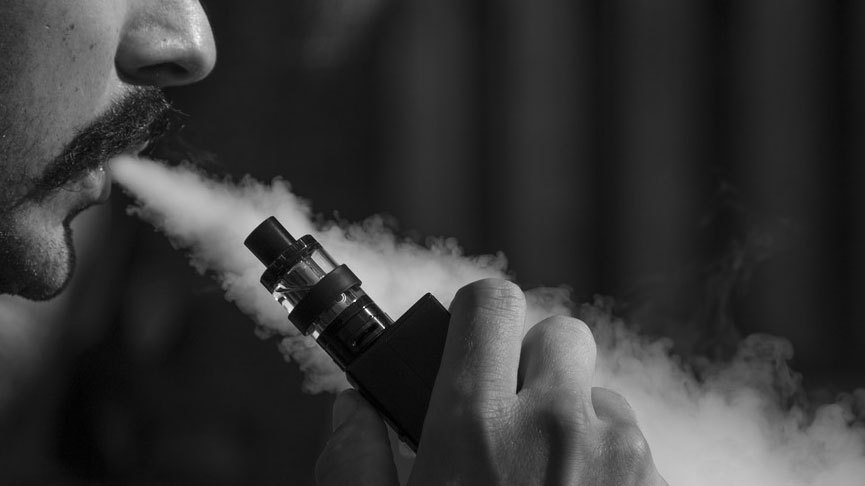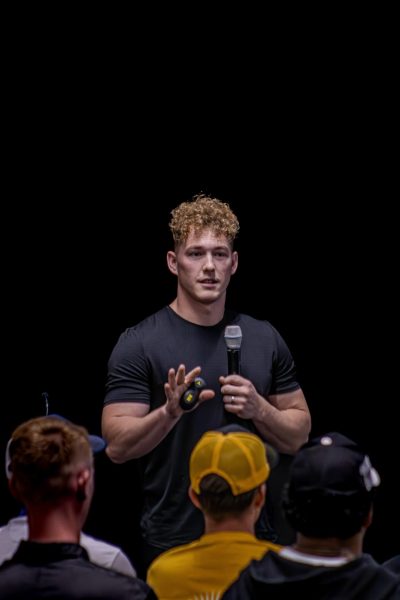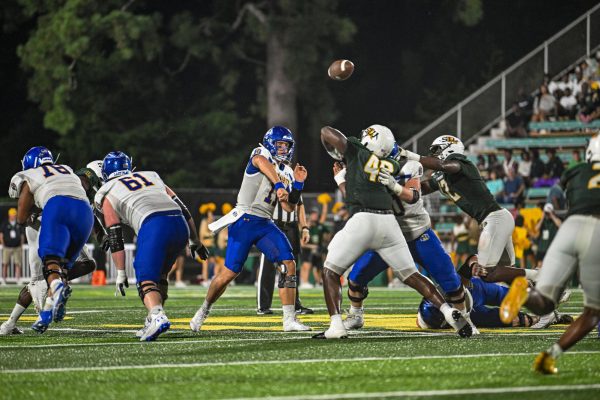Students to present research to state legislators
Cutline: Legislators will hear about research that will help public health officials develop a media campaign to discourage vaping during the 2019 Student Poster Session Feb. 28 in Pierre. SDSU senior Alexandra Farber, an advertising and communication studies major from Britton, gathered data on what motivates young people to use electronic cigarettes, known as vaping, for the South Dakota Department of Health.
February 21, 2019
South Dakota State University senior Alexandra Farber and junior Sydney Bormann will tell legislators about research projects designed to improve human health at the Student Poster Session Feb. 28 in Pierre. Both undergraduate researchers are part of the Van D. and Barbara B. Fishback Honors College.
Farber, an advertising and communication studies major from Britton, gathered data on what motivates young people to use electronic cigarettes, known as vaping, for the South Dakota Department of Health. Her research will help public health officials develop a media campaign to discourage vaping. Professor Roxanne Lucchesi of the School of Communication and Journalism is her research adviser.
“I started with a subject I was basically unaware of and got passionate about it—it was a great learning experience,” said Farber. “It prepared me well for graduate school.”
Bormann, a human biology major and a member of the SDSU women’s golf team, is identifying gut bacteria that inhibit the growth of disease-causing microorganisms. The Parkston native works at the Animal Disease Research and Diagnostic Laboratory under the supervision of Assistant Professor Joy Scaria in the Department of Veterinary and Biomedical Sciences. Bormann’s project was supported through funding from the South Dakota Governor’s Office of Economic Development, the U.S. Food and Drug Administration and the American Society for Microbiology.
“The time I’ve spent in the lab has been invaluable to develop as a student and as a researcher,” said Bormann, who hopes to become a physician. As one of 26 students nationwide to receive an American Society for Microbiology Undergraduate Fellowship, she will also present her work at the June Microbe Meeting.
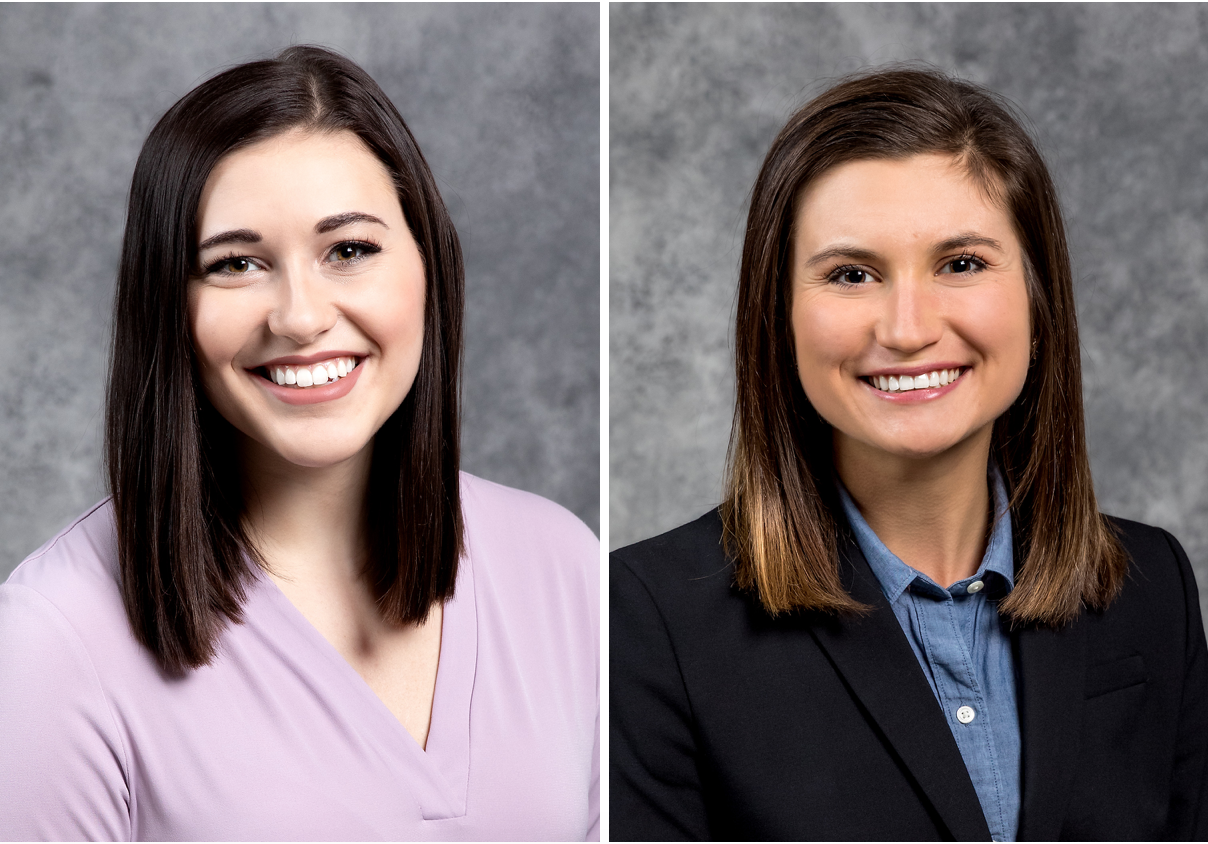
Surveying young people about vaping
Farber worked with Lucchesi to develop an online survey distributed statewide, thanks to S.D. DOH funding. “In doing health communications research, Alex ventured outside her comfort zone—her willingness to stretch herself, to expand her horizons is one of the driving forces that will fuel her success at SDSU and beyond,” Lucchesi said.
Farber reported that 501 South Dakotans between the ages of 18 and 34 completed the survey. When asked why they tried e-cigarettes the first time, most respondents cited personal curiosity and/or friends as motivation. More than one-third of the respondents were motivated to use e-cigarettes as a possible alternative to smoking.
“For me, the most impactful ads are ones that trigger my emotions—and make me think,” Farber said. ““We need to draw on those emotions for the campaign.”
Given a list of adjectives to describe their first experience with e-cigarettes, a majority of the respondents had negative reactions. Almost half of the respondents chose “unimpressed” to describe their initial experience. Nearly 12 percent reported their reaction as “hesitant” and about 6 percent chose the term, “sick” as a descriptor.
What concerned respondents most about vaping was lack of knowledge about the ingredients in the e-liquids, Farber explained. “There are so many questions about these ingredients and the overall long-term impact of vaping on human health.” Those concerns can also be utilized in the media campaign.
Of those who described their first e-cigarette experience in positive terms, nearly 30 percent chose the term “happy” and more than 9 percent selected “empowered.”
Based on her research, Farber believes the use of e-cigarettes and vaping devices among young adults should be monitored. “Vaping is associated with serious health risks and can lead to tobacco smoking, due to nicotine addiction,” she said. “It appears men are more likely to try vaping devices. Consequently, the Department of Health should make sure the media campaigns reach men.”
Because research is limited, the insights from this study are valuable to health officials as they formulate messaging to discourage young adults from trying e-cigarettes and vaping devices and communicate the harmful effects associated with their use.
Identifying beneficial gut bacteria
“To develop better probiotics, we are looking for gut bacteria that form biofilms as a mechanism to outcompete pathogens,” explained Bormann, who has been working in Scaria’s lab since fall 2017. “If these good bacteria colonize the mucosal interface in the gut, it prohibits pathogens from taking that space.”
Last summer, she screened a chicken gut library, examining 63 bacterial species to identify those that form biofilms. To do this, she worked with postdoctoral research associate Abhijit Maji and graduate student Supapit Wongkuna. Professor Kinchel Doerner, dean of the Graduate School and an anaerobic bacteriologist, served as a co-mentor for the project.
“Sydney is highly motivated and focused,” Scaria said. “Her commitment to the project has brought her recognition and is helping us to identify bacteria that can potentially help improve gut health.”
“Hopefully, the results of my project will contribute to further development of probiotics that will enhance both animal and human health,” Bormann said.
Undergraduate research is an experience that Bormann encourages other students to try. “I would tell other undergraduates to reach out and ask professors. We are extremely lucky to have professors who definitely want us in the lab. SDSU not only has the resources but also faculty willing to take the time to mentor undergraduate researchers.”

